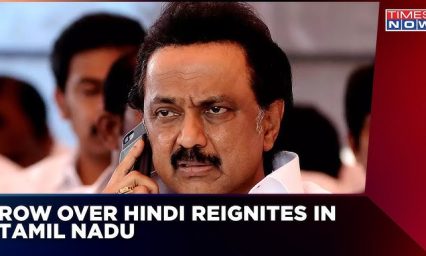A few years ago, I attended a function. The choir sang like angels, and the crowd applauded like fans at a cricket match. But suddenly I was shocked, because there, on stage, smiling like a movie star at a premiere, sat a bishop who had been removed from the church. Not just removed—he was also overstaying in his official residence, and had even been charged with corruption.
And yet here he was, garlanded, applauded, introduced as the chief guest!
I wanted to shout, “Has anybody opened Paul’s letter to the Corinthians?” Because in 1 Corinthians, chapter 5, verse 11 onward, Paul writes with the clarity of a High Court judgment: Do not associate with anyone who calls himself a brother but is sexually immoral, greedy, an idolater, a slanderer, a drunkard or a swindler. With such a person do not even eat.
But what do we do? We don’t just eat with them—we roll out red carpets, click selfies, and sometimes even fight for the privilege of sitting next to them.
Is it any wonder then that corruption flourishes in church property, and other matters?
We’ve got priests with lifestyles that make Bollywood stars look frugal, pastors driving SUVs while preaching humility, and executive directors who want a position just to put in on their letterheads, maybe not guilty of theft but of laziness—leaders who resemble old ceiling fans: noisy, creaky, and utterly useless.
And while they fool us, we—continue taking selfies with them.
Tell me honestly, if a politician with a corruption case is invited to inaugurate your colony park, don’t we shake our heads and mutter, “Shameless fellow!”? But when it comes to the church, we suddenly lose our voices, as though calling out a priest is a greater sin than corruption itself.
Paul would have none of it. He said, “those who preach, lead, and manage God’s work—it’s our responsibility to call them out.”
If we don’t, we’re not just bystanders, we’re accomplices. It’s like watching someone siphon petrol from your car and consoling yourself, “At least he left some for me.”
Friends, respect does not mean blind obedience. Silence is not spirituality. Calling out corruption is not rebellion—it’s obedience to God. If we don’t, the rot will spread like termites. By the time we wake up, the entire structure will collapse, and no amount of incense, prayers, or hallelujahs will cover the stench.
So next time a corrupt church leader gets on stage, don’t clap like a paid studio audience. Don’t nod approvingly like a yes-man in a boardroom. Don’t shake hands as though holiness rubs off like dust. Instead, stand tall and say, “We will not honour you, because you have dishonoured Him.”
Because one day, when we stand before God, He will ask: “Why were you quiet while My house became a den of thieves?”
And trust me, nothing can save you then….!
————————————————–
Would love to hear from you in the COMMENTS section below…and IF YOU WANT TO RECEIVE BOB’S BANTER EVERYDAY, PLEASE SEND YOUR NAME AND WHATSAPP PHONE NO TO [email protected]
————————————————–










 Robert Clements is a newspaper columnist and writes a daily column, which has graced the pages of over 60 newspapers and magazines, from a daily column in the Khaleej Times, Dubai, the Morning Star, London, and in nearly every state in India, from The Statesman in Kolkata, to the Kashmir Times in Kashmir to the Trinity Mirror in Chennai.
Robert Clements is a newspaper columnist and writes a daily column, which has graced the pages of over 60 newspapers and magazines, from a daily column in the Khaleej Times, Dubai, the Morning Star, London, and in nearly every state in India, from The Statesman in Kolkata, to the Kashmir Times in Kashmir to the Trinity Mirror in Chennai.
I wish that the Church hears you and acts.
I hope they do Robin.
Scripture teaches us to use a combination of Grace and Truth to address every concern and conflict. Even if others aren’t doing it, let us lead the way, by following the Way.
Excellent. Grace and truth- indeed a lethal combination. Thanks Sonia.
Church leaders have the responsibility to be an example and a guiding light for others. If they fall short, anyone from the congregation should be able to gently point them in the right direction.